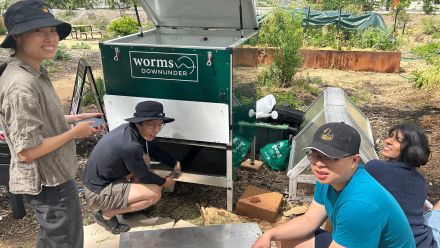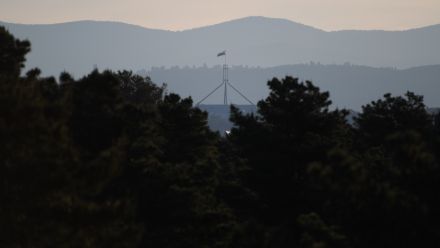teal: adjective: of or relating to an independent political candidate or politician who advocates for greater integrity in parliament and more action on addressing harmful climate change. noun: such a candidate.
Experts at The Australian National University (ANU) have chosen teal as the Word of the Year for 2022.
Previously associated with a dark greenish-blue colour, or even a breed of duck, teal now has another meaning in Australian English.
The word came to prominence this year during the federal election. A 'teal wave' of independents successfully challenged government members of parliament in a number of seats.
Each year the Australian National Dictionary Centre, based at ANU, selects a word or expression that has gained prominence in the Australian landscape over the past 12 months.
The centre's Senior Researcher, Mark Gwynn, said this year's choice was relatively easy because the word was prominent throughout the election campaign, continues to be widely used and looks likely to be talked about for some time yet.
"Teal is a word that has become associated with a new and significant movement in Australian politics, and one that is also linguistically productive," Mr Gwynn said.
"It is used as a noun to refer to individual candidates or representatives, and as a modifier in numerous compounds including teal candidate, teal independent, teal revolution, teal seat, teal volcano and teal wave to name just a few."
Although the word originated from the colour that several of these high-profile candidates used in their promotional material, it quickly evolved into something larger.
"The interesting aspect of this term is that many of the so-called teal candidates did not use this colour in their campaign. The colour came to represent a movement of independent and strong female voices taking on the establishment," Mr Gwynn said.
"As the successful teals begin to establish themselves in the new parliament it will be interesting to see how the term teal evolves or indeed continues at all."
The centre's Word of the Year shortlists have been dominated by phrases related to the COVID-19 pandemic in recent years. This year, two of the words on the list reflect the ongoing social and cultural impact of the pandemic. But new cultural trends are also represented, such as the mainstream discussion of eshays, and the impact of the economic crisis, with shrinkflation.
The full 2022 shortlist includes:
- cooker: a derogatory term for a person involved in protests against vaccine mandates, lockdowns and a range of other issues perceived to be infringing on personal freedom.
- eshay: a teenager or young man who is part of a group associated with anti-social behaviour and characterised by the wearing of certain brand-label clothing.
- quiet quitting: (of an employee) not working beyond the hours and duties specified for a role.
- shrinkflation: a reduction in the size, quantity or quality of a pre-packaged product while pricing remains the same or increases.
The Australian National Dictionary Centre researches Australian English in partnership with Oxford University Press Australia and New Zealand, and edits Oxford's Australian dictionaries.
Oxford University Press is a department of the University of Oxford. It furthers Oxford University's objective of excellence in research, scholarship, and education by publishing worldwide. OUP is the world's largest university press with the widest global presence.


